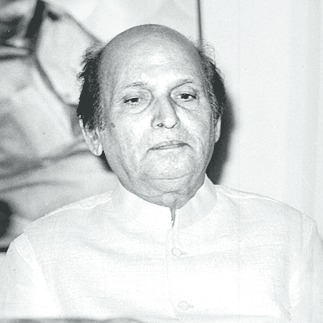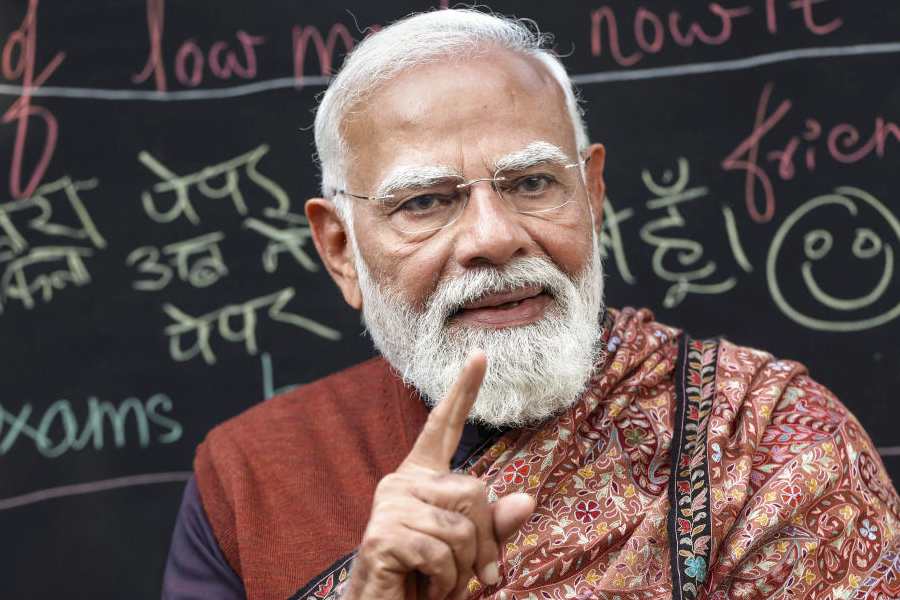
In Lahore, in the days leading up to the 1971 war, the streets convulsed with shouts and gunshots. The sound of slogans penetrated closed windows and walls. Newspapers cheered on authoritarianism and violence: one characteristic editorial proudly declared that "our army is busy crushing the enemies of the country... President Yahya Khan was left with no other choice but to order military action in East Pakistan." Yet this urgent moment finds Zakir, the protagonist of Intizar Husain's renowned 1979 novel Basti, lost in reverie. "The more the turmoil increases outside," he observes, "the more I sink into myself."
By the time of his death last month, Husain had gained a measure of international acclaim unusual for a writer in Urdu. Obituaries have estimated that he was 91, 92, or 93 years old; Husain himself is said to have used his grandmother's method of dating a life according to important political or climatic events. He was born in Dibai, a town in Uttar Pradesh. During his adolescence, Husain's family moved to nearby Hapur, a more urban setting where he attended a Hindu school. Husain would be inspired by Hindu mythology - alongside that of his own distinctive South Asian Shia heritage - throughout his writing life.
Hopeful about the future of Pakistan, Husain arrived in Lahore as an aspiring young writer. He was soon contributing reportage and criticism to the Urdu press. His first collection of stories was published in 1952, followed by another in 1955. His journalism, he said, aimed at "worldly wisdom"; it was in his fiction that he stopped being worldly, and started "speaking the truth". Fine literary distinctions such as these would be sportingly debated at the Lahore cafes, such as Pak Tea House, where Husain was a fixture.
Over the dictatorships, wars, and massacres that ensued, Husain was never censored or jailed or beaten. Though frequently critical of successive regimes, Husain's stories and novels were too mythical, too elliptical, and too elegiac to attract much of the oppression that surrounded him. With time, Husain became a guiding spirit of Pakistani letters. In 2012, New York Review Books published a translation of Basti by Frances W. Pritchett. It was shortlisted for the Booker Prize and led to a flurry of attention in the writer's final years.
Basti - an Urdu word that refers to a human settlement of any size - offers an exemplary introduction to Husain's work. It is also a dazzling, courageous book. As Pakistan's disintegration looms, Zakir is helplessly consumed by his memories. Like Husain, Zakir is born in a town in northern India, the fictional Rupnagar, and moves to Lahore as a young man. Rupnagar is archaic and harmonious, an Eden Husain illustrates with a delightful array of mythological stories. Zakir is told by a Hindu shopkeeper that the earth rests on the head of an elephant that rests on the back of a tortoise. His father says that the earth rests on the horns of a cow that stands still for fear of disturbing a mosquito near its nostrils. This story includes an eschatology: the world will end "when the rulers grow cruel, and the people lick the dust" and "those who can speak fall silent, and shoelaces speak."
For Zakir, Rupnagar's abundant mysticism is a direct connection to the wondrous origins of mankind. Yet the town's peaceful traditions are under threat. When electricity arrives, the monkeys that roam through Rupnagar try swinging on the newly installed wires. They are electrocuted, one by one. After an apparent leader of the monkey tribe is killed, the animals flee the town.
Soon, we read of Zakir's own departure from his birthplace. His memories continue moving chronologically forward, interspersed with scenes of increasing chaos in the present as war with India approaches. Lahore reveals itself to share none of Rupnagar's custodianship of history. "Sun, storms, rain, bird-droppings: these four things combine to bestow venerability and grandeur on a building," writes Husain. Constant turmoil in Pakistan prevents any building from lasting long enough to gain any such visible connection to the past. The communal focus is on politics, not history. Zakir is a quizzical spectator to the crowds raising violent slogans. Describing his protagonist's reaction to polemical posters, Husain writes in a folkloric tone redolent of the tales from Rupnagar: "He felt that he was not reading slogans, but walking on dead flies."
This is a skill of Husain's: the subversion of an apparently paramount worldly struggle by the evocation of a deeper natural order. In his work, these two forces are antagonistic. The comforts offered by the presence of nature and ritual get wiped out in Pakistan, a nationalistic country seeking a definitive break from its polyglot ancestry. It is no surprise that Husain's engagé critics frequently called out his nostalgia. Was he simply unfit for the modern world?
Basti shows this critique to miss what is vigorous and challenging in Husain's emphasis on the past. He feelingly describes the solace Zakir finds at the Shiraz, a local teahouse, and at the cafe of the Imperial, a once famous Westernized hotel in Lahore. Zakir usually goes to the Shiraz alone, and finds there a group of friends with whom he can bicker, complain, and reminisce. At the Imperial, he watches couples dance and finds his own partner for a night. If Husain had been French, he might have turned out a little like Patrick Modiano, the Parisian writer whose novels celebrate the chance encounters and gritty mysteries of city life.
But Husain was Pakistani. In Basti, the Imperial crumbles to the ground; even the Shiraz cannot escape destruction. Rupnagar's traditions and Lahore's urbanity both have been lost. As Dacca falls, Zakir remembers his father's apocalyptic prediction: the world will end when "those who can speak fall silent, and shoelaces speak." Husain once said that Pakistan's nuclear weapon test left him unable to write fiction. But only for so long. Through this and so many other national traumas, Husain did not fall silent. He found a way to continue writing stories that insisted on a shared history most of his contemporaries and all those in power sought to suppress. The nostalgia of Basti is a bitter and powerful dissent.










